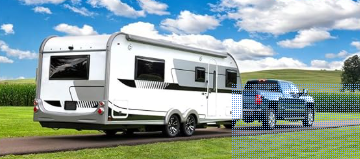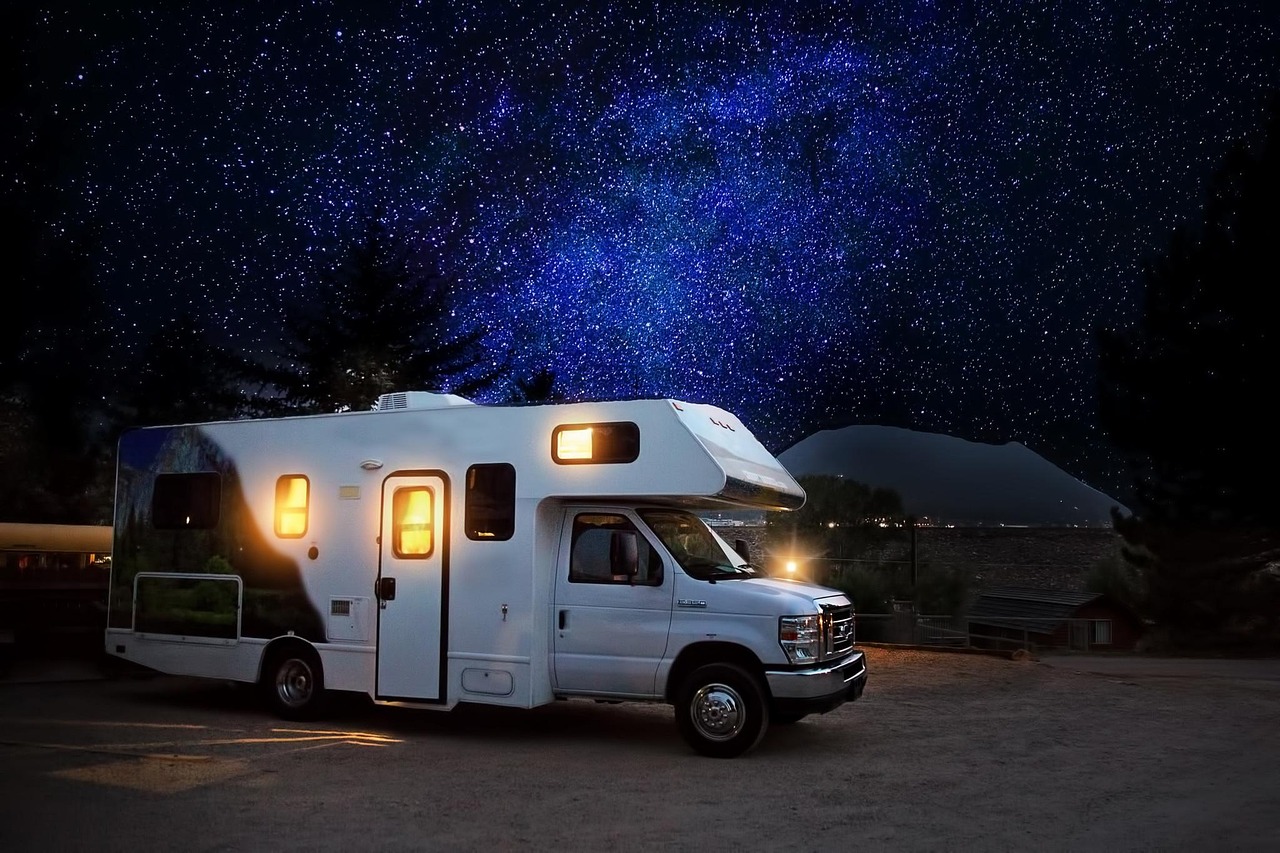Table of Contents
- Why RV Safety Matters
- Pre-Trip Safety Checklist
- On-the-Road Safety Tips
- Campsite Safety Guidelines
- Top Safety Accessories for Beginners
- Emergency Preparedness for RV Life
- Insurance and Security: What You Should Know
- Final Tips for Staying Safe on the Road
Why RV Safety Matters
RVing is an exciting and freeing way to explore the world — but it also comes with risks if you’re unprepared. From mechanical failures to campsite theft or fire hazards, having the right safety knowledge can mean the difference between a dream trip and a nightmare.
As a beginner, your goal is to be proactive, not reactive.
Pre-Trip Safety Checklist
Before each trip, inspect your rig. This checklist can help prevent emergencies:
- ✅ Check tire pressure & tread
- ✅ Test brake lights & signals
- ✅ Inspect propane tanks for leaks
- ✅ Secure all interior items
- ✅ Check engine fluids
- ✅ Ensure windows and doors are locked
Download a printable checklist for your RV binder!
On-the-Road Safety Tips
Staying alert while driving an RV is different than a regular car. Here’s how to drive smarter:
- Know your height and weight limits before approaching overpasses or weight-limited roads.
- Use your side mirrors often — blind spots are larger.
- Drive slower than usual; RVs take longer to stop.
- Avoid night driving in unfamiliar areas.
📌 Pro Tip: Install a dash cam for liability protection and travel logs.
Campsite Safety Guidelines
Once you park, your next safety concern is your surroundings. Whether you’re in a national park or a boondocking spot:
- Survey your surroundings: Avoid setting up under dead trees or on unstable terrain.
- Use motion-activated exterior lighting to deter animals and people.
- Lock all compartments and bikes when unattended.
- Never leave a fire unattended and always have a fire extinguisher on hand.
Top Safety Accessories for Beginners
Start with these basic safety tools:
| Accessory | Why You Need It |
|---|---|
| RV Surge Protector | Prevents electrical damage during power hookups |
| Wheel Chocks | Keeps your RV from rolling at rest |
| RV Fire Extinguisher | For kitchen or electrical fires |
| Door Lock Upgrades | More secure than stock locks |
| Security Camera System | Allows remote monitoring while away |
💡 Check out our “Best RV Safety Accessories” for more RV Safety Accessories.
Emergency Preparedness for RV Life
You’re your own first responder in many RV situations. Here’s what to pack:
- First-aid kit with meds, bandages, burn cream
- Portable jump starter and battery bank
- Paper maps or offline GPS for dead zones
- Multi-tool or utility knife
- List of emergency contacts
Also, practice evacuation scenarios like fire or medical emergencies.
Insurance and Security: What You Should Know
- Ensure comprehensive RV insurance (covers theft, breakdowns, fire)
- Add theft protection such as GPS trackers and motion sensors
- Keep digital and paper copies of insurance and ID handy
- Consider joining RV clubs that offer roadside assistance
Final Tips for Staying Safe on the Road
- Never skip maintenance.
- Stay informed about weather patterns.
- Have a backup plan for emergencies.
- Trust your gut—if a location feels unsafe, move on.
- Build a network with other RVers for support and safety advice.
🧭 Conclusion
Safety should never be an afterthought in your RV journey. As a beginner, you’re setting the stage for countless adventures—and being prepared will keep those adventures enjoyable and incident-free. By investing in the right gear and following smart practices, you’ll be cruising confidently in no time.
💬 Ready to level up your setup? Check out our Best RV Safety Accessories for New Owners for beginner-friendly gear that makes a big difference.
Back to Home Page

